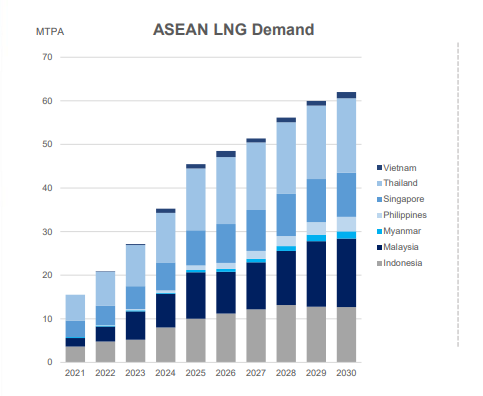Thousands Of UK Households Receiving HMRC Letters: Income Over £23,000

Table of Contents
What Triggers an HMRC Letter Regarding Income Over £23,000?
HMRC sends letters regarding income exceeding £23,000 for various reasons, often stemming from discrepancies between your reported income and their records. This isn't necessarily a cause for alarm; it could simply be a routine check. However, prompt attention is vital.
-
Potential underpayment of tax: This is a common reason. If HMRC's calculations show you owe more tax than you've already paid, you'll receive a letter explaining the discrepancy and outlining the amount you owe. This could relate to various tax types including Income Tax, National Insurance contributions, and Capital Gains Tax.
-
Discrepancies between reported income and HMRC's records: Errors can occur, either on your part or HMRC's. Perhaps you missed a tax return deadline, or HMRC received incorrect information from your employer or other sources.
-
Changes to tax codes or allowances: A change in your circumstances (like a new job or marriage) may lead to an adjustment in your tax code, resulting in an HMRC letter outlining the changes and their impact on your tax liability.
-
Routine checks and audits: HMRC regularly conducts checks to ensure accuracy and compliance. Receiving a letter as part of a routine audit doesn't automatically mean you've done anything wrong.
Common sources of income exceeding the £23,000 threshold include:
- Employment income (salary, wages, bonuses)
- Self-employment income (profits from your business)
- Rental income from properties you own
- Investment income (dividends, interest, capital gains)
Maintaining accurate and detailed records of all your income sources is paramount to avoid such situations. Keep all relevant documentation, including P60s, payslips, bank statements, and self-assessment records, securely stored and readily accessible.
Understanding the Content of the HMRC Letter
HMRC letters typically contain specific information to help you understand the reason for contact. Familiarising yourself with this information is crucial for an effective response.
-
Specific tax year in question: The letter will clearly state which tax year (e.g., 2022-2023) the information relates to.
-
Amount of income HMRC has recorded: This figure represents the income HMRC has on file for you during the specified tax year. Compare this to your own records to identify any discrepancies.
-
Amount of tax owed (if any): If an underpayment is identified, the letter will clearly specify the amount you owe and the due date for payment.
-
Deadlines for responding: These letters often include deadlines for responding. Failing to meet these deadlines can lead to penalties.
Different types of HMRC letters exist, with varying levels of urgency. A routine enquiry will require a simple clarification, while a tax demand letter demands immediate action and payment.
How to Respond to an HMRC Letter About Income Over £23,000
Responding promptly and accurately to HMRC correspondence is vital. Ignoring the letter could lead to penalties and further complications.
-
Gather necessary documentation: Before responding, gather all relevant documentation, including P60s, self-assessment tax returns, bank statements, and any other records related to the income in question.
-
Contact HMRC directly if unclear: If you're unsure about any aspect of the letter, contact HMRC directly through their helpline or online portal. Don't hesitate to seek clarification.
-
Resolve discrepancies: If you identify discrepancies between HMRC's figures and your own records, provide evidence to support your claim. Work collaboratively with HMRC to resolve the issue.
Failing to respond to an HMRC letter can result in penalties, further investigation, and potential legal action. Timely and accurate responses are crucial.
Seeking Professional Help with HMRC Tax Issues
While many individuals can manage straightforward tax queries themselves, seeking professional help is sometimes necessary.
-
When to seek help: Consider professional assistance if you’re facing complex tax issues, struggling to understand the letter's contents, or dealing with significant tax debts.
-
Benefits of professional help: A tax advisor or accountant can provide expert guidance, navigate complex tax legislation, represent you in discussions with HMRC, and help minimize your tax liability.
Many reputable tax advisors and accountancy firms offer services specializing in HMRC tax issues. The HMRC website provides resources and links to find qualified professionals.
Conclusion: Taking Action on Your HMRC Letter Regarding Income Over £23,000
Receiving an HMRC letter regarding income exceeding £23,000 requires prompt attention. Understanding the content, gathering necessary documentation, and responding accurately are vital steps in ensuring compliance. Don't delay; act now to avoid potential penalties and resolve any discrepancies. If you need assistance, don't hesitate to seek professional help. Understanding your HMRC letter about income over £23,000 is crucial – act now! For assistance with HMRC letters concerning income exceeding £23,000, seek expert advice.

Featured Posts
-
 Blog Home Office Vs Kancelaria Preco 79 Manazerov Preferuje Osobne Stretnutia
May 20, 2025
Blog Home Office Vs Kancelaria Preco 79 Manazerov Preferuje Osobne Stretnutia
May 20, 2025 -
 Mick Schumachers Cadillac Hopes Strengthened By F1 Champions Support
May 20, 2025
Mick Schumachers Cadillac Hopes Strengthened By F1 Champions Support
May 20, 2025 -
 Post Nuclear Taiwan The Growing Demand For Lng Cargoes
May 20, 2025
Post Nuclear Taiwan The Growing Demand For Lng Cargoes
May 20, 2025 -
 I Los Antzeles Thelei Ton Giakoymaki
May 20, 2025
I Los Antzeles Thelei Ton Giakoymaki
May 20, 2025 -
 Should Investors Worry About Current Stock Market Valuations A Bof A Analysis
May 20, 2025
Should Investors Worry About Current Stock Market Valuations A Bof A Analysis
May 20, 2025
